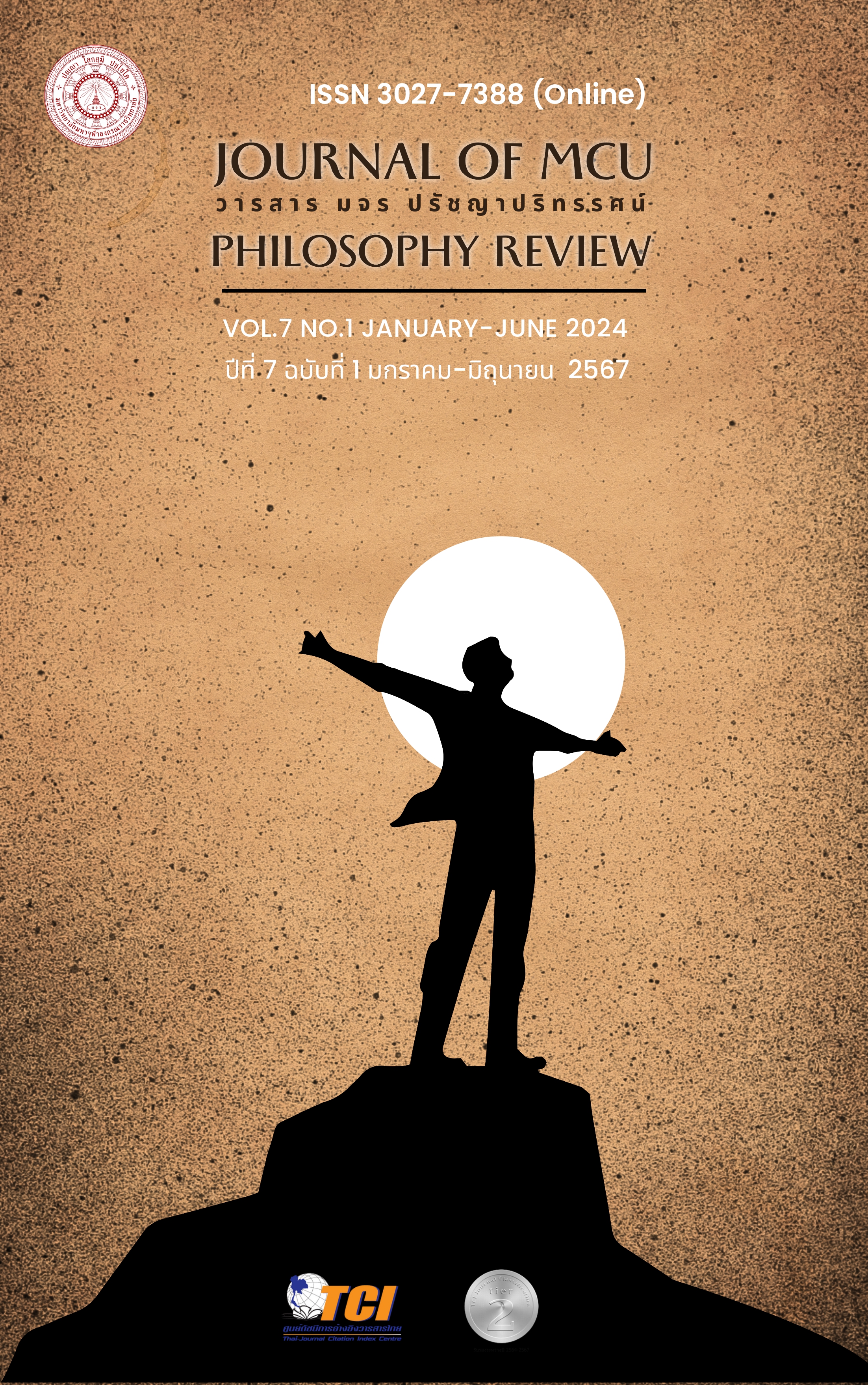The Paradigm of Educational Administration
Main Article Content
Abstract
This study was documentary research on the paradigm of educational administration. The findings were summarized as follows. Paradigm and its application aids in educational administration paradigm. The theory provides profound insights into the adaptability and interconnectedness between paradigm and the contextual framework of educational administration. The concept of Chaos theory facilitates a profound comprehension of the phenomenon of shifting paradigm during periods of volatility and uncertainty. The COVID-19 pandemic has served as a catalyst for transforming educational administration paradigm during the transition to the era of New Normal. It has also accelerated various megatrends, leading to a significant digital disruption as digital technologies have become integral in facilitating socially distanced lifestyles. The concept of a New Normal leadership is an emerging idea that has been developed to emphasize the importance of adaptability and flexibility in facing challenges in the New Normal era. The VUCA framework serves as a tool for explaining the educational landscape in the new normal, providing an understanding of the context relevant to educational administration and the paradigms that occur during this time period. While the distinction between the characteristics of resilience and flexibility is a significant aspect in understanding the evolving landscape of educational leadership in the new normal era.
Article Details

This work is licensed under a Creative Commons Attribution-NonCommercial-NoDerivatives 4.0 International License.
บทความที่ได้รับการตีพิมพ์เป็นลิขสิทธิ์ของวารสาร มจร ปรัชญาปริทรรศน์
ข้อความในบทความที่ได้รับการตีพิมพ์ในวารสาร ถือเป็นความรับผิดชอบของผู้เขียนบทความ และข้อคิดเห็นนั้นไม่ถือว่าเป็นทัศนะและความรับผิดชอบของกองบรรณาธิการวารสาร มจร ปรัชญาปริทรรศน์
References
กุสุมาวดี คำเกลี้ยง. (2563). New Normal ความปกติใหม่บนโลกใบเดิม (เอกสารประกอบการบรรยาย จัดโดย กรมสุขภาพจิต ณ ห้องสมุดศูนย์วิทยบริการศาลยุติธรรมเฉลิมพระเกียรติ อาคารศาลอาญา, 29 พฤษภาคม 2563).
เกียรติอนันต์ ล้วนแก้ว. (2563). โลกของงานหลังโควิดบนฐานวิถีชีวิตใหม่. สืบค้นข้อมูลเมื่อวันที่ 1 กรกฎาคม 2566 จาก https://www.eef.or.th/wp-content/uploads/2020/06/.
ชลลดา ทองทวี. (2550). ตัวดึง-เร่งวิถี ในกระบวนการเปลี่ยนย้ายกระบวนทัศน์ : กระบวนการเรียนรู้สู่สังคมแห่งสุขภาวะ, วารสารอักษรศาสตร์ มหาวิทยาลัยศิลปากร, 29 (ฉบับพิเศษ ภาษาและวัฒนธรรม) : 135-155.
ประเวศ วะสี. (2537). กระบวนทรรศน์ใหม่ในการพัฒนา : แนวทางใหม่แห่งความร่วมมือในการพัฒนา (New Development Paradigm). กรุงเทพมหานคร.
ปัญจพัฒน์ ประสิทธิ์เดชสกุล. (2563). พลิกโฉมธุรกิจหลังวิกฤตโควิด-19, Research Intelligence, กรกฎาคม: 2.
ไพพรรณ เกียรติโชติชัย. (2545). กระบวนทัศน์ใหม่แห่งการศึกษาในศตวรรษที่ 21. กรุงเทพมหานคร: การศึกษา.
ราชบัณฑิตยสถาน. (2555). พจนานุกรมศัพท์ศึกษาศาสตร์ ฉบับราชบัณฑิตยสถาน ราชบัณฑิตยสถาน 2555. กรุงเทพมหานคร : ราชบัณฑิตยสถาน.
สิริพร แสงเทียนฉาย, ผู้จัดพิมพ์. (2563). New Normal ชีวิตวิถีใหม่ในภาวะ COVID-19. วงการยา, 20 (262) : 9-12.
สุรศักดิ์ ปาเฮ. (2560) ครูกับการศึกษายุคโลกาภิวัตน์. สืบค้นข้อมูลเมื่อวันที่ 1 มกราคม 2564 จาก https://sites.google.com/site/nilobonnoeyps/h
อนันต์ พันนึก. (2012) ประเด็นทฤษฎีทางการบริหารการศึกษา. สืบค้นข้อมูลเมื่อวันที่ 1 กรกฎาคม 2566 จาก http://www.gotoknow.org/posts/232655
Capra Fritjof. (1986). The Concept of Paradigm and Paradigm Shift, (Re-Vision 9).
Christopher DC. Francisco and Alvin V. Nuqui. (2020). Emergence of a Situational Leadership during COVID-19 Pandemic called New Normal Leadership, International Journal of Academic Multidisciplinary Research, 4(10): 18.
David Bohm. (1965). “Space, Time, and the Quantum Theory Understood in Terms of Discrete Structural Process”. the Proceedings of the International Conference on Elementary Particles Kyoto: 252-287.
Elizabeth Thoman and Tessa Jolls. (2003). Literacy for the 21st Century an Overview & Orientation Guide to Media Literacy Education. Retrieved on July 1, 2023from https://www.medialit.org/sites/default/files/01_MLKorientation.pdf
Jonathan Anderson. (2010). ICT Transforming Education: A Regional Guide. Thailand: UNESCO Bangkok.
Peter Oliva and William Gordon. (2017). 20th vs 21st Century Classroom - 21st Century Schools. สืบค้นข้อมูลเมื่อวันที่ 1 กรกฎาคม 2566 https://www.21st centuryschools.com/ 20th-vs-21st-century-classroom.html
Ricardo L. Fernandes Bella and Douglas V. Barboza. (2021). Resilience Meets Sustainable and Spiritual Background into an Initial Review for the New Normal After the COVID-19 Pandemic, Frontiers in Sustainability, 2: 3.
Ronald L. Iman. (1995). New Paradigms for the Statistics Profession, Journal of the American Statistical Association, 90(429): 1.
Sathiabalan Murugan et. al. (2020). Volatility, Uncertainty, Complexity and Ambiguity (VUCA) in Context of the COVID-19 Pandemic: Challenges and Way Forward, International Journal of Health Systems and Implementation Research, 4(2): 11.
Thomas S. Kuhn. (1962). The Structure of Scientific Revolutions. Chicago: University of Chicago.


